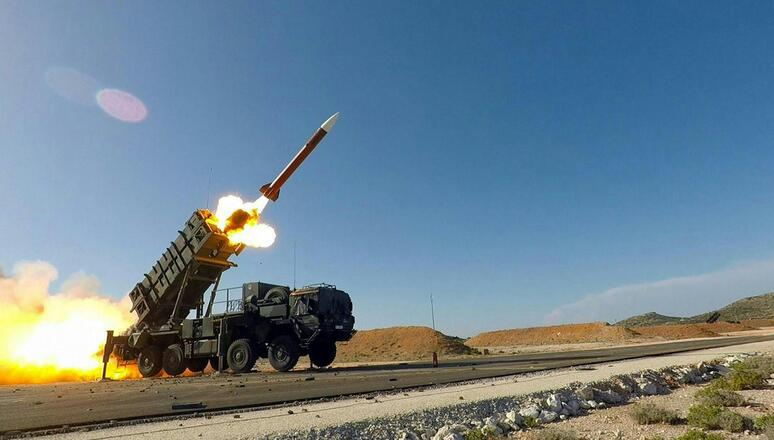Russia has expressed concern that the Japanese-manufactured missiles for the Patriot air defense system, which Tokyo plans to transfer to Washington, might ultimately be used in the Ukraine war.
The Russian Embassy in Japan expressed this concern to Izvestia, warning that Moscow would view such a development as a hostile act.
Patriot air defense systems are among the most advanced weapons the US supplied to Ukraine and have been critical in defending against Russian attacks. However, Washington’s substantial support for Ukraine has strained its arsenal.
As a result, Washington turned to Japan to address its urgent need to replenish its depleted weapons stockpiles following the multibillion-dollar arms shipments provided to Ukraine.
In July 2024, Japan’s Ministry of Defense finally approved the transfer of missiles for the US Patriot PAC-3 system. That decision marked a major shift in Japan’s defense policy.
Previously, Tokyo only permitted the export of components tied to licensed manufacturing agreements. New rules implemented earlier this year allow Japan to export fully assembled defense products.
A condition of the agreement prohibits the transfer of these weapons to Kyiv without Japan’s explicit approval. Tokyo maintains its longstanding ban on exporting weapons to nations actively involved in a conflict.
Despite this, the Russian Embassy voiced doubts about whether this restriction would be honored, given the broader context of US weapons replenishment.
“They do not particularly hide here that the main goal of this agreement is to replenish the American arsenals, which have been reduced due to the transfer of weapons to the Kyiv regime. It is possible that it is the ammunition that will eventually end up in Ukraine,” the diplomatic mission said.
“For our part, we have repeatedly warned the official Japanese authorities that we consider any supply of weapons to Ukraine – no matter where they come from – as an openly hostile act. Such steps will have an extremely negative impact on bilateral relations,” the Russian Embassy added.
Russian Ambassador to Japan Nikolai Nozdrev has also previously cautioned that Moscow would respond decisively if Japanese missiles were found in Ukraine. Possible retaliatory measures could include sanctions or other diplomatic actions.
Tensions Between Russia And Japan
Relations between Japan and Russia have sharply deteriorated since Moscow’s invasion of Ukraine in February 2022. In response to Japan’s support for Ukraine, Russia froze peace treaty negotiations, halted agreed-upon economic projects, and ended visa-free visits to disputed islands for Japanese citizens.
At the time, Prime Minister Fumio Kishida has criticized suspending these activities as “extremely unjust.” The two nations have long been at odds, failing to formally conclude a peace treaty since World War II.
The conflict centers around a territorial dispute over a chain of Pacific islands—referred to as the Northern Territories in Japan and the Southern Kuriles in Russia. The islands, situated off the northeast coast of Hokkaido, have been claimed by both nations since the 19th century.
Near the end of WWII, the Soviet Union seized the islands, which Japan argues were incorporated “without any legal grounds.” Tokyo claims approximately 17,000 Japanese residents were deported during the occupation, a point of contention that has stalled negotiations for decades.
For Russians, the islands are viewed as rightful compensation for the sacrifices of the Soviet people during the war.

Efforts to resolve the dispute have remained fruitless, with talks repeatedly collapsing. Earlier this year, Russian President Vladimir Putin announced plans to visit the Kuril Islands, dampening hopes for renewed negotiations on sovereignty.
On the other hand, Japan has strengthened its alignment with Western powers, particularly the European Union and NATO. Japanese leaders have participated in NATO summits, with former NATO Secretary General Jens Stoltenberg even hailing Japan as the alliance’s closest ally in Asia.
Russia’s concern over Japan’s decision to export Patriot missiles to the United States has exacerbated the already strained relationship. Moscow fears these weapons may eventually be transferred to Ukraine.
Meanwhile, the possible deployment of US medium-range missiles in Japan—a proposal that Tokyo has not yet approved—introduces an additional layer of complexity to the evolving situation.
Russian Deputy Foreign Minister Sergey Ryabkov has recently urged the US to rethink its plan to deploy medium-range missiles in the Asia-Pacific, warning that such a move could cross a dangerous red line.
- Contact the author at ashishmichel(at)gmail.com
- Follow EurAsian Times on Google News




